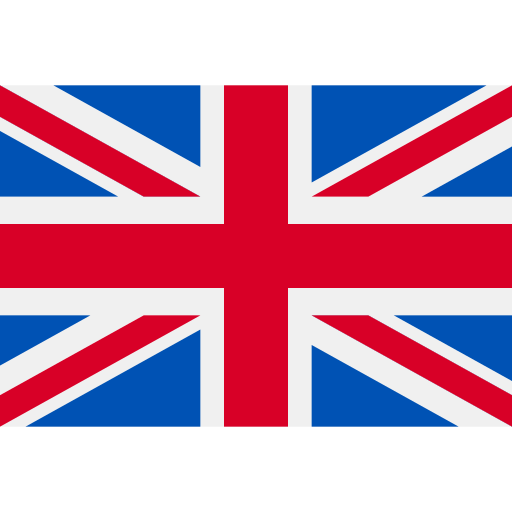Qantas has an enviable safety record, consistently ranked as either the safest airline in the world or not far from it.
Since the dawn of the Jet Age, it has never suffered a fatal accident or lost an aeroplane hull, which is a credit to its staff and its leadership.
But in the aviation chaos of the past few months — amid huge numbers of delayed flights, cancelled flights, and after the loss of experienced staff — employees have told us about their fears that the stellar reputation of the airline they love could be undermined.
“As frustrating as it is for passengers, for pilots it means we’re working a lot harder to keep the flights on schedule,” one Qantas pilot said.
“We’re working longer hours. We are red-lining, running at max capacity in a very dynamic, challenging environment. There’s a lot that can go wrong.”
A licensed engineer told ABC’s Four Corners: “The planned work for the night, we used to get through it, what they planned for us almost every night. Now, the first thing we do is have a look at what work is up to its time limit and has to be done, so the plane can fly the next day.”
We can’t name the many employees we spoke to because they could be sacked for raising their concerns.
Qantas categorically rejects claims that its aircraft maintenance engineers are overworked or that there is a risk to safety.
It does not dispute union estimates that numbers are down by up to 35 per cent on the levels it had before the onset of COVID-19.
However, it says it requires fewer engineers than it had pre-COVID because maintenance requirements are much lower, with its 747-fleet retired and international capacity down.
Tony Lucas has been a pilot for 30 years, 27 of those with Qantas, and he has risen through the ranks to become a senior check and training pilot.
He is also president of the Australian and International Pilots Association, a voluntary position he holds alongside his job at Qantas.
Tony Lucas has flown for Qantas for 27 years.(ABC: Four Corners
He is careful not to overstate safety concerns but acknowledges risks have grown.
“All the disruptions that we’re getting, none of them, in and of themselves, are anything different to what we deal with on a day-to-day basis,” he told ABC’s Four Corners.
“But what we’re seeing at the moment, we’re seeing them occur multiple times in the day.
“We’re seeing them occur across multiple weeks, and ultimately that’s where things start to increase in operational complexity.
“Any one of those things on their own isn’t a big deal to deal with, but when you start adding them up all together, across multiple flights, that starts to become a concern for safety.”
‘The Swiss cheese model’
Talk to people in safety-critical roles in aviation, and it’s often not long before conversation turns to the ‘Swiss cheese model’.
It’s a theory of accident causation based on this metaphor, because all human-designed systems are fallible: They have holes in them, like a slice of Swiss cheese.
To avoid accidents, it is necessary to put many slices together — to layer the defences — so there is no possibility that the holes can line up and an accident happen.
The Civil Aviation Safety Authority has endorsed multiple safety and risk management systems at Qantas, and no-one is suggesting there is currently any systemic risk.
However some employees Four Corners spoke to worried that, amid outsourcing and loss of experience, and cost-cutting and chaos at airports, the layers of defence had thinned,
They feared the holes were moving closer together.
Insiders say Qantas’s move to outsource ground staff during COVID has led to chaos.(ABC: Four Corners
After COVID devastated aviation in 2020, Qantas announced it would retrench 1,700 ground staff at Australia’s major airports.
It outsourced the work to contractors, anticipating savings of a hundred million dollars a year.
Insiders have told us how this strategy has backfired spectacularly.
Luggage lost, bags loaded incorrectly
A current ground staff member told ABC’s Four Corners: “Anybody that thinks the outsource of the in-house ground handling is not a problem is delusional. Bags aren’t making aircraft on time. Bags are being loaded onto aircraft incorrectly. Flights are being cancelled because crew are running out of hours to operate these flights in the time it would take to fix the issues.”
Staff say flights are being cancelled because ground handlers are running out of time.(ABC: Four Corners
We were also told inexperience led to close calls, because it was vital luggage and cargo be loaded onto planes correctly for the right weight distribution.
“One incident I’m aware of, the ground handlers, they loaded the aircraft incorrectly,” one employee said.
“So, what should have gone in the front, went in the back. What went in the back should have gone in the front. And it was only realised it was done the wrong way just before the cargo hold was supposed to be closed.”
This incident can be seen one of two ways: The fact that a supervisor apparently picked up the error before the plane departed could suggest that the Swiss cheese defences are robust.
Qantas told ABC’s Four Corner that it “shows a safety management system that is working and designed to capture human error through multiple fail-safes”.
On the other hand, it could suggest that skill and experience, an important layer of defence, has been eroded.
“We’re expected to do basically the tasks that the Qantas ground services did, but with a lot less numbers and experience,” said one worker from an outsourced company used by Qantas to manage ground-handling.
“As a result, we have a very high turnover rate that makes the already-bad situation even worse.
“We can’t build enough experienced people doing the job more efficiently and safely, so we do jobs more slowly and haphazardly as people just don’t know, they’re still learning on the job. “
Lost luggage piles up at the Qantas group check-in area at Sydney Airport.(Supplied
Qantas has said “data shows a lower rate of incidents compared to when ground-handling was done in-house”.
It claimed unions were making “baseless and generalised” safety claims to “further their industrial agendas”.
Yet its own employees, and not just union officials, raised these concerns with Four Corners.
‘A militant employer’
On industrial relations, Qantas is notoriously hard-line.
“I think it’s fair to say Qantas is a militant employer,” professor of labour law at the University of Sydney, Shae McCrystal, told ABC’s Four Corners.
“It’s been prepared to take every angle under the act. It’s been prepared to take really destructive decisions in pursuit of the bottom line.”
Famously, on October 29, 2011, Qantas chief executive Alan Joyce grounded the entire Qantas fleet worldwide, leaving tens of thousands of passengers stranded during an industrial dispute with pilots, engineers and ground-handlers.
As Qantas was betting, the resulting economic damage led the government to intervene and send the dispute to arbitration before the Fair Work Commission, which threw out job security claims being pursued by unions and employees.
Qantas accuses unions of making baseless safety claims.(ABC: Four Corners
The radical Qantas action smashed resistance to what has become a foundation of the airline’s business model: to gradually replace, or threaten to replace, existing employees with outsourced labour, or hire new staff on lower pay and conditions hired through subsidiary companies Qantas creates or acquires.
Qantas is often referred to as a “legacy airline”, which is code for an airline that came out of public ownership with generous pay and conditions compared to newer competitors.
Since its privatisation 30 years ago, it has been finding creative ways to cut labour costs.
In the airplane cabin, flight attendants employed on “legacy” pay rates can work alongside employees on basic award pay from labour hire firms, and cabin crew employed by wholly-owned Qantas subsidiaries established to supply labour at cheaper rates.
Conditions from a ‘different era’
Matthew Allsop spent just shy of 16 years wearing the Qantas uniform and “flying under the Qantas tail but never actually worked for Qantas proper”.
Former flight attendant Matthew Allsop says many of his colleagues would be on different pay and conditions.(ABC: Four Corners
He worked for a specialist, external labour-hire firm that supplies flight attendants to Qantas and a subsidiary company, QF Cabin Crew Australia, that Qantas set up to employ new international flight attendants.
He recalls how, on some flights, he would work alongside staff from a UK Qantas subsidiary, a New Zealand Qantas subsidiary and legacy staff, on different pay and conditions.
“And, when you equated their hourly rates and conditions, one legacy crew, for example, would get you two Kiwis, three UKs or two Qantas Cabin Crew Australians,” he said.
“So, all four of those working together, side by side, pushing carts, handing out meals on one plane.”
Qantas told us it “grandfathers” older conditions for long-serving employees “from a different era of aviation”, enabling Qantas to become more competitive over time.
But conditions do not always remain grandfathered.
Last year, Qantas proposed a new agreement to its international flight attendants that involved significant and deeply unpopular changes to rosters and other conditions.
Close to 98 per cent of its staff voted the agreement down.
Qantas responded by applying to have their existing enterprise agreement terminated and push the employees back to the bare-bones-award safety net, with significantly lower pay and benefits.
“For workers, agreement termination is a threat that their remuneration, their working conditions fall off a cliff,” Professor McCrystal said.
Shae McCrystal describes Qantas as a “militant employer”.(ABC: Four Corners
“Now, if you are a worker with a mortgage and your employer is threatening to terminate your existing enterprise agreement, the consequence for you could be that you can’t pay your mortgage, that you no longer have the income coming in that you have organised your life around.”
Resistance to Qantas’s proposal from the flight attendants and their association crumbled.
‘They play one group of pilots off another’
Qantas claims that its approach is “common across the industrial landscape”; it’s less common to use a structure of subsidiaries and silo companies to achieve that goal.
“In terms of pilots, of the things that Qantas has done very successfully, because the law allows them to, is that they’ve acquired or set up subsidiary airline groups,” Mr Lucas said.
“And then what they do is, they play one group of pilots off another group, and essentially threaten to take the flying a group of pilots is currently doing and give it to another group of pilots.”
This was on display when Qantas negotiated a new enterprise agreement with its long-haul pilots for Airbus 350 planes capable of ultra-long-range flights, direct from Australia to New York or London.
“This investment can’t be made at any cost and the flight crew cost base remains the last component of the overall business case which needs to be met,” Qantas management told pilots in an email.
Unless they accepted Qantas’s terms, it warned: “We will be left with no viable alternative but to have [the] flying performed by a new employment entity that can provide the cost base we need.”
In plain English, Qantas would find a new company to hire other pilots to do the work.
The same tactics were used with short-haul pilots in the modernisation of the domestic fleet.
“It was a metaphorical gun to the head,” Tony Lucas said.
Keith Marriott is dismayed by Qantas’s approach to industrial relations.(ABC: Four Corners/Nick Wiggins
Pilot Keith Marriott retired in 2020 after a career flying planes for Qantas that spanned 36 years.
“I totally enjoyed my time with Qantas,” he said.
“I considered it to be one of the greatest privileges that anyone could have. I couldn’t have scripted a better career.”
However, the veteran pilot — who held voluntary positions with the pilots’ association for a couple of years — is dismayed by Qantas’s approach to industrial relations.
“For pilots, job security is everything,” he said.
“It takes a long time to become a pilot. You basically fully commit your life to the job, but your skills are not portable. Therefore, job security is absolutely paramount, and pilots cherish their job security.
“Unfortunately, that has been used as a threat to the pilots. If you don’t comply with what we want, we’ll find someone else that will.”
Qantas makes no apologies. Its constant refrain is that it does what it needs to do to meet its business objectives, compete in a tough market, and remain viable.
“What we have had to do over the years to be efficient to be able to compete in a very competitive in market,” Mr Joyce told ABC’s Four Corners, in answer to our questions at the Qantas group financial results briefing.
“I would say that the Australian domestic market is the most competitive in the world. We have seen airlines like Virgin … like Rex come into the market and start up from scratch and the national carrier to survive has to have adapted to it.”
When asked if it was fair, Mr Joyce replied: “It’s a necessity for us to keep our business going.”
Qantas says it is doing what it has to to remain viable in a tough market.(ABC: Four Corners
It can come with a hidden cost to morale.
Qantas maintains it has excellent relations with what the chief executive calls “our people”.
Some staff we spoke to worried that what they view as the nickel-and-diming of staff is approaching a point where it could affect safety.
“I don’t work for a tea and coffee company. I work in a safety environment, on a heavy piece of machinery. I am the airline’s first responder. If there is a fire, I’m required to run towards it. If there is a medical emergency, I’m required to run towards it and render all help required,” Matthew Allsop said.
“So, for that critical safety sensitive role, basically people are now being paid the same as if they worked in a fast-food outlet or worked at a supermarket.”
A Qantas pilot told ABC’s Four Corners: “When you mix a safety critical role with a threat of losing your job, then it really only ends in one way. A mistake will be made, there will be an incident, and I believe that Qantas management are underestimating the impact of their behaviour.”
Another observed: “I feel like the staff have been beaten down. Especially the staff that we deal with on a day-to-day basis around aeroplanes, ground staff, check-in staff. They’ve been beaten down. They’re not the same.”
Watch Four Corners’ full investigation into the chaos inside Qantas tonight at 8:30 on ABC TV and ABC iview .

 Canada
Canada Japan
Japan Germany
Germany Australia
Australia United States
United States United Kingdom
United Kingdom China
China France
France Ukraine
Ukraine Russia
Russia Turkey
Turkey